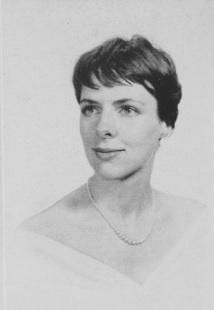Abstract
In Part 1 of this interview, Cynthia Lee Jenner begins by describing her family background. She talks about the contemporary stigma against a middle class wife with a career and the effect of this on her mother and herself. From this context, she attended an all-girls boarding school and Pembroke College, both of which sought (though failed) to prepare her for “gracious living.” She goes on to discuss deciding to attend Pembroke, her tour guide, living at 87 Prospect Street (now Machado House), and her advanced discussion-based coursework. Within these seminars, it occurred to Cynthia that Pembroke carried an unusual breed of women. These were forthright women—especially those involved in the theater, as she was. Still, she describes the heavily gendered setup of Pembroke life, the concept of “in loco parentis,” only being able to socialize with men in public areas, and the separate administrations. She elaborates further, going on to describe the black market that developed around posture pictures – a eugenics practice that included taking photos of nude students under the guise of checking for scoliosis, being taught how to write an invitation, being physically crippled by girdles and waist cinches, Dior’s New Look, and Margaret Jerrold’s “rape” shoes. She ends this section by considering the controversies of birth control, on-campus pregnancies, and losing her virginity.
In Part 2, Jenner ruminates on what has changed and what has stayed the same since she was at Pembroke. The most prominent difference, she notes, is the existence of birth control, which gave women control over their destinies. She discusses friends dropping out of school to have children, her own naïveté, avoiding the drug era, and drinking on campus. Moving on, she recalls her involvement in theater, her triumphs, and, mostly, her failures. Jenner then talks about her one theater class, her friendships, and her preference for learning by doing. She continues to discuss some of the traditions at Pembroke, namely Spring Weekend and May Day—the latter of which she refers to as a “pagan fertility rite.” She continues to discuss how she did not take the path that was outlined for her, talks about her mixed transcript, her degree in philosophy, going to graduate school and pushing back against gender norms.
In Part 3, Jenner ties together the interview by explaining her professional life. After attending Yale for one year, and then studying in England, Jenner pursued a number of careers that flowed into one another. She spent time as an actress on the “bus, truck and dinner theater circuit,” started work as a theater critic, pursued a number of advanced degrees, and became a dramaturg. In the end, her advice is to not be afraid of serial careers, such as hers. She lived her life by solving each problem as it appeared, and did so with gratification.
Part 1
Part 2
Part 3
Recorded in New York, NY
Suggested Chicago style citation: Jenner, Cynthia Lee. Interview. Pembroke Center Oral History Project, Brown University.
Biography
Cynthia Lee Jenner grew up in the Chicago area, before attending Pembroke College as part of the class of 1961. Forgoing her early ambitions of becoming an archeologist, Jenner eventually studied philosophy, though she was heavily involved in drama groups while on campus. After graduating, she attended Yale for one year and then completed her theatrical studies in England. Working as a minor actress for a number of years, Jenner served as a theater critic for over two decades. Eventually, her career shifted yet again toward teaching and dramaturgy,all while she was pursuing an M.A. and Ph.D. Finally, Jenner helped to found the Literary Managers and Dramaturgs of the Americas – a nation-wide organization that brings together and authenticates dramaturgy.
